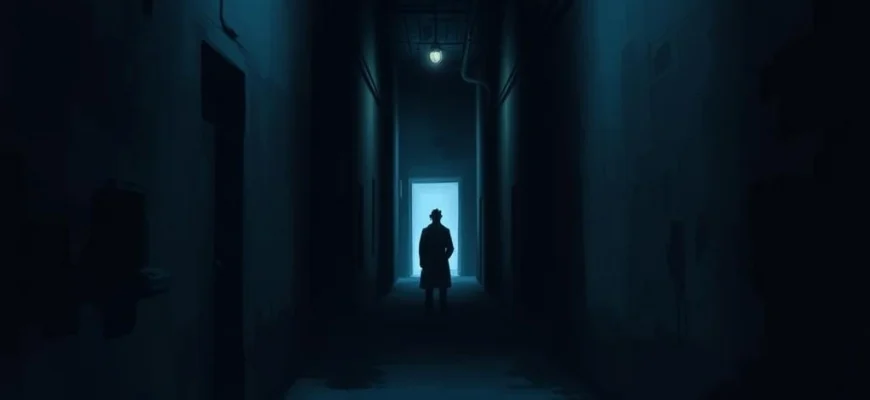If you enjoyed the psychological thriller 'Return from the Ashes' (1965), you'll love these 10 similar movies and shows that deliver suspense, intrigue, and unexpected twists. This article explores gripping tales of deception, survival, and revenge that will keep you on the edge of your seat.
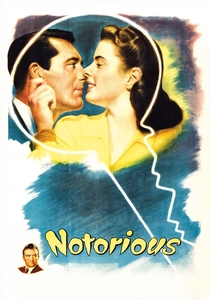
Notorious (1946)
Description: A tense espionage story involving undercover agents, romantic entanglements, and high-stakes intrigue, with a focus on psychological manipulation.
Fact: The film features one of the longest uninterrupted kisses in cinema history at the time, cleverly edited to comply with the Hays Code's restrictions. The uranium MacGuffin was inspired by real wartime concerns about Nazi nuclear research.
 Watch Now
Watch Now 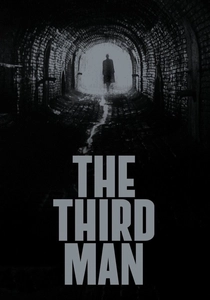
The Third Man (1949)
Description: A gripping post-war noir thriller with themes of deception, betrayal, and moral ambiguity, set against a shadowy European backdrop.
Fact: The film's iconic zither score was composed by Anton Karas, a musician discovered playing in a Vienna wine bar. The famous Ferris wheel scene was shot in Vienna's Prater amusement park.
 Watch Now
Watch Now 
The Manchurian Candidate (1962)
Description: A psychological political thriller exploring brainwashing, conspiracy theories, and the manipulation of individuals for political ends.
Fact: The film was withdrawn from circulation for 25 years due to its controversial subject matter surrounding the Kennedy assassination. It features one of cinema's most chilling depictions of hypnotic programming.
 Watch Now
Watch Now 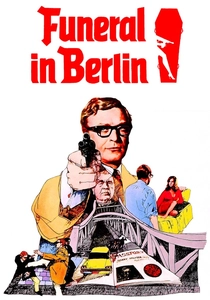
Funeral in Berlin (1966)
Description: A Cold War spy thriller featuring complex double-crosses, bureaucratic intrigue, and a morally ambiguous protagonist navigating divided Berlin.
Fact: The film's authentic Berlin locations were shot just five years after the Berlin Wall's construction. The screenplay was adapted from the novel by Len Deighton, who also wrote the Harry Palmer series.
 Watch Now
Watch Now 
The Day of the Jackal (1973)
Description: A meticulously plotted thriller about an assassin's coldly professional preparations, with a cat-and-mouse structure and European settings.
Fact: The film's anonymous protagonist was so convincing that some viewers believed he was based on a real assassin. The detailed weapon assembly scene was so accurate it was studied by real-world security agencies.
 Watch Now
Watch Now 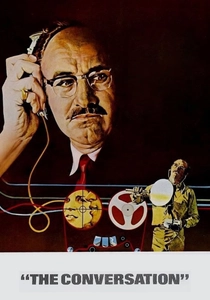
The Conversation (1974)
Description: A character study of a surveillance expert whose work leads to moral quandaries, featuring intricate sound design and themes of privacy invasion.
Fact: The film's central surveillance sequence was achieved through innovative multi-track recording techniques. It was developed alongside the Watergate scandal, adding unexpected relevance.
 Watch Now
Watch Now 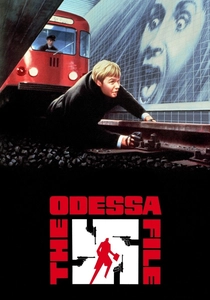
The Odessa File (1974)
Description: A journalist's investigation uncovers a web of former Nazis in postwar society, blending historical reckoning with thriller elements.
Fact: The film's car chase scene through Hamburg was one of the first to use the now-common technique of mounting cameras on the vehicles themselves. It was based on Frederick Forsyth's novel, which incorporated real Nazi-hunting research.
 Watch Now
Watch Now 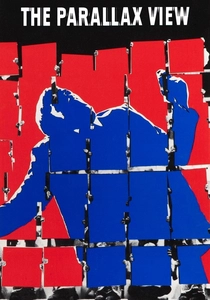
The Parallax View (1974)
Description: A conspiracy thriller about a journalist uncovering a shadowy organization, featuring striking visual symbolism and a bleak view of institutional power.
Fact: The film's famous psychological test sequence used subliminal imagery that was genuinely disturbing to test audiences. Its ending was considered unusually downbeat for mainstream cinema at the time.
 Watch Now
Watch Now 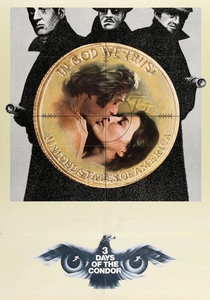
Three Days of the Condor (1975)
Description: A conspiracy thriller about a bookish researcher forced to go on the run when his colleagues are murdered, exposing institutional corruption.
Fact: The film's surveillance technology predictions were remarkably prescient, anticipating many real CIA capabilities. The New York locations were shot guerrilla-style without permits to maintain authenticity.
 Watch Now
Watch Now 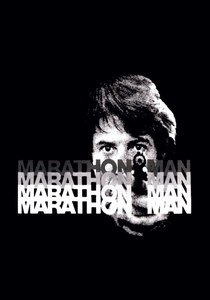
Marathon Man (1976)
Description: A paranoid thriller about an ordinary man caught in international intrigue, featuring torture scenes that became infamous for their intensity.
Fact: The dental torture scene was so convincing it caused a spike in dentist appointment cancellations. Dustin Hoffman stayed awake for days to authentically portray his character's exhaustion.
 Watch Now
Watch Now 
